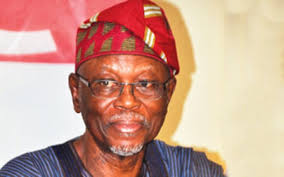A Federal High Court in Lagos has adjourned the trial of five Chinese nationals accused of cybercrimes until March 4 and 5. The defendants, Zhao Ying Bin, Yuzi (aka Wei Xuehuan), Zhang Yang, Weng Zhi Cheng, and Genting International Co. Limited, rejected the court-appointed interpreter, prompting the adjournment.
Justice Ayokunle Faji granted the adjournment to allow the defendants to secure an interpreter of their choice. The Economic and Financial Crimes Commission (EFCC) had arraigned the defendants on charges of allegedly destabilising Nigeria’s constitutional structure through cybercrimes.
The EFCC alleged that the defendants wilfully accessed computer systems to gain financial advantage and employed Nigerian youths for identity theft. The offence is punishable under Section 18 of the Cybercrimes Prohibition Act, 2015 (Amended, 2024).
Prosecution counsel Hannatu Kofanaisa had sought to proceed with the trial, but defence counsel N. Abraham urged the court to adjourn, citing the need for adequate facilities to defend the defendants. The Administration of Criminal Justice Act, 2015, provides that every defendant must be given adequate facilities to defend themselves.
The rejection of the court-appointed interpreter has raised concerns about the defendants’ willingness to cooperate with the court. The EFCC has secured several convictions in recent years for cybercrimes, but this case has highlighted the challenges of prosecuting foreign nationals in Nigerian courts.
The use of interpreters is crucial in ensuring that defendants understand the charges against them and can participate fully in the trial. However, the rejection of the court-appointed interpreter has stalled the trial and raised questions about the defendants’ strategy.
The EFCC has been working to combat cybercrimes in Nigeria, and this case is seen as a significant test of the commission’s ability to prosecute foreign nationals. The outcome of the trial will be closely watched, and any further delays could have implications for the EFCC’s efforts to combat cybercrimes.
The trial has also highlighted the need for greater cooperation between Nigerian authorities and foreign governments in combating cybercrimes. The EFCC has been working with international partners to track down and prosecute cybercriminals, but more needs to be done to address the root causes of these crimes.




































